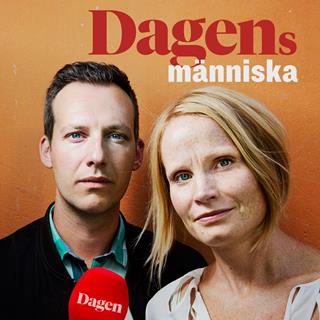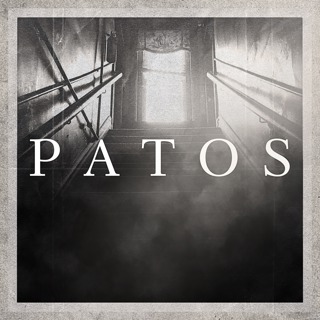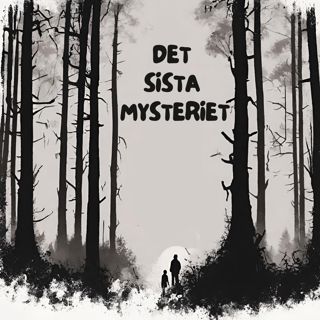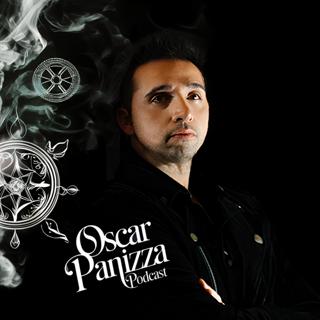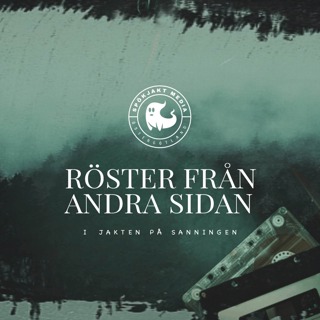![[Negative] "Who is the Holy Spirit" |Trinitarian -VS- Oneness Pentecostal? [PART 2]](https://cdn.podme.com/podcast-images/B7BACDC6627CBF35E00059E0335A4CB6_small.jpg)
[Negative] "Who is the Holy Spirit" |Trinitarian -VS- Oneness Pentecostal? [PART 2]
Who is the Holy Spirit | Albee (Trinitarian Christian) -VS- Brandon J. Nero (Oneness Pentecostal)? YouTube Link: https://youtu.be/pQrh0y-BFPg Link Tree: https://linktr.ee/Bnero34
18 Nov 202220min
!["Who is the Holy Spirit" |Trinitarian -VS- Oneness Pentecostal? [PART 1]](https://cdn.podme.com/podcast-images/B7BACDC6627CBF35E00059E0335A4CB6_small.jpg)
"Who is the Holy Spirit" |Trinitarian -VS- Oneness Pentecostal? [PART 1]
Who is the Holy Spirit | Albee (Trinitarian Christian) -VS- Brandon J. Nero (Oneness Pentecostal)? YouTube Link: https://youtu.be/-AV1MMLjKy4 Link Tree: https://linktr.ee/Bnero34
18 Nov 202224min

Chalcedon, Council of (451)
Chalcedon, Council of (451). Fourth ecumenical council, the chief task of which consisted of defining the doctrine of the two natures in the one person (or hypostasis) of Jesus Christ. The debate that characterized this council arose from the contrast between two christological tendencies.
15 Nov 202217min

First Ecumenical Council of Ephesus(431 AD).
The Council of Ephesus, also known as the Third Ecumenical Council, was a gathering of leaders of the Christian churches in the Roman Empire to deal with the Nestorian controversy. It was held over several sessions in 431 at the Church of Mary in Ephesus, Asia Minor (modern Turkey).
12 Nov 202213min

First Council of Constantinople- 381 AD
Encyclopedia Britannica Home Philosophy & Religion Scriptures First Council of Constantinople 381 By The Editors of Encyclopaedia Britannica Edit History First Council of Constantinople, (381), the second ecumenical council of the Christian church, summoned by the emperor Theodosius I and meeting in Constantinople. Doctrinally, it adopted what became known to the church as the Niceno-Constantinopolitan Creed (commonly referred to as the Nicene Creed), which effectively affirmed and developed the creed earlier promulgated at the Council of Nicaea in 325 (Creed of Nicaea).
31 Okt 202215min

First Council of Nicaea
First Council of Nicaea Year: 325 Outcome: The council denounced Arianism and issued the Nicene Creed, affirming the Son is of one substance (homoousios) with the Father. Recognized by: • Roman Catholic Church • Eastern Orthodox Churches • Oriental Orthodox Churches • Anglican Church • Lutheran Churches • Assyrian Church of the East Topics discussed: • Arianism • Baptism • Christology • Lapsi • Ordination • Paschal Controversies • Trinity Heresies addressed: Arianism Opponents: Arius Ruling popes: Pope Saint Sylvester I Ruling patriarchs: • Pope Saint Sylvester I • Alexander of Constantinople • Pope Alexander of Alexandria • Saint Eustathius • Macarius of Jerusalem Ruling emperors:Constantine the Great (Roman) Council conveners:Constantine the Great Council presidents: Hosius of Corduba Other key figures: • Arius • Athanasius of Alexandria • Caecilian • Eusebius • Eusebius of Nicomedia • Saint Jacob of Nisibis • Leontius of Caesarea • Saint Nicholas • Saint Paphnutius • Potamion of Heraclea • Protogenes of Serdica • Saint Spyridon Number in attendance: 318 Location: Nicaea Church council documents: • The First Ecumenical Council • Nicene Creed • Canons • Arabic Canons Later Attributed to the Council of Nice • Synod Letter • Letter to those Unable to Attend the Council[1] [1]Parks, J. (2022). Ecumenical Councils. Faithlife.
30 Okt 202217min

The Spirit of Jesus Christ| Oneness-Pentecostal Pneumatology
The Spirit as identified with Jesus Christ. The most important development and element in earliest Christian understanding of the Spirit is that the Spirit is now the Spirit of Jesus Christ (Acts 16:7; Rom 8:9; Gal 4:6; Phil 1:19; 1 Pt 1:11; see also Jn 7:38; 15:26; 16:7; 19:30; Rv 3:1; 5:6). The Spirit is to be identified as the Spirit that bears witness to Jesus (Jn 15:26; 16:13–15; Acts 5:32; 1 Cor 12:3; 1 Jn 4:2; 5:7–8; Rv 19:10), but also, and more profoundly, as the Spirit that inspired and empowered Jesus himself. This Spirit became available to the believers after Christ’s resurrection. The apostles John and Paul were quite clear in their writings about Christ becoming spirit through resurrection. The keynote verses penned by John are: 1. John 6:63 2. John 7:37–39 3. John 14:16–18 4. John 20:22 5. 1 John 3:24 6. John 4:13. The critical passages written by Paul are: 1. Romans 8:9–10 2. 1 Corinthians 15:45 3. 2 Corinthians 3:17–18 4. 1 Corinthians 6:17 Revelation concerning the Spirit of Jesus is progressive in the Gospel of John. a. John does not tell us from the beginning that people could not actually receive eternal life until the hour of Christ’s glorification. b. Throughout the Gospel, Jesus declares to various people that he can give them eternal life if they would believe in him. c. He promises them the water of life, the bread of life, and the light of life. NOTE: But no one could really partake of these until after the Lord had risen. As a foretaste, as a sample, they could receive life via the Lord’s words because his words were themselves spirit and life (Jn 6:63). However, it was not until the Spirit would become available that believers could actually become the recipients of the divine, eternal life. After the Lord’s discourse in John 6, Jesus said: “It is the Spirit that gives life, the flesh profits nothing” (v 63). In the flesh Jesus could not give them the bread of life, but when the Spirit became available, they could have life. Again, Jesus offered the water of life—even life flowing like rivers of living water—to the Jews assembled at the Feast of Tabernacles. He told them to come and drink of him. But no one could, then and there, come and drink of him. So John added a note: “But this he spoke concerning the Spirit, for the Spirit was not yet because Jesus was not yet glorified” (7:39). Once Jesus would be glorified through resurrection, the Spirit of the glorified Jesus would be available for people to drink. John 6, Jesus offered himself as the bread of life to be eaten by people. John 7, he offered himself as the water of life to refresh men. But no one could eat him or drink him until he became spirit, as was intimated in John 6:63 and then stated plainly in John 7:39. Elwell, W. A., & Comfort, P. W. (2001). In Tyndale Bible dictionary (pp. 1220–1221). Tyndale House Publishers.
30 Okt 202220min

Dyothelitism or Dythelitism (from Greek δυοθελητισμός "doctrine of two wills")
Dyothelites (δυοθελῆται), a name given to those orthodox Christians in the 7th century who held that there were two wills in Christ, a divine and a human, in opposition to the Monothelites (q. v.). The sixth œcumenical council (i. e. the third Œcumenical Council of Constantinople), called by the emperor Constantine Pogonatus in A.D. 680, asserted the doctrine of two wills in Christ in the following terms: “Two wills and two natural modes of operation united with each other, without opposition or change, so that no antagonism can be found to exist between them, but a constant subjection of the human will to the divine.” The champions of monothelism were anathematized, as well as the patriarchs of Constantinople and the pontiff Honorius. The monothelite doctrine was placed in the ascendency in 711, but two years later Anastasius II ascended the throne and established dyothelism, whereupon the monothelites fled the country. M’Clintock, J., & Strong, J. (1894). Dyothelites. In Cyclopædia of Biblical, Theological, and Ecclesiastical Literature, Supplement—A–Z (Vol. 12, p. 313). Harper & Brothers, Publishers.
28 Okt 20225min










